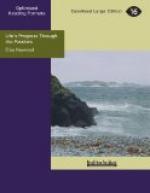That an old officer in the army having obtained leave to dispose of his commission, Natura should become the purchaser; and to enable him to do so, the baron would advance a sum of money, to be returned at several easy payments, as he received the profits arising from his troop.
Love and gallantry had already had their turns with Natura; ambition, and the pride of being in an independent state, began now to work in him:—as France was in alliance with England, there was neither shame nor danger in entering into her service:—besides, he considered, that as his father was no longer in a condition to supply him with money abroad, he could not expect any settlement to be made on him at home that would be answerable to his former expectations;—and that by a captain’s pay, joined to some assistance he might hope to receive sometimes from England, he should be enabled to make a very good figure in the world, till the misfortunes of his family should be retrieved, and if they never were so, he should at least have a provision for life, in a country he was not weary of.
He therefore made no hesitation of accepting this proof of the baron’s friendship, who immediately went about making good his promise; and what with his money, and the great interest he had, both with the court and army, Natura was dispensed with, for not having been in the service before; and in a very few days saw himself at the head of a troop of horse.
His father, to whom he wrote an account of the step he had taken, with his motives for it, was far from being offended at it; tho’ he told him it added to his trouble, to think his eldest son should be compelled, by his having entered into a second marriage, to have recourse to any avocation whatever for bread; but concluded with telling him, that in the severe necessity of their present circumstances, he could not have pitched on any thing more agreeable to his inclinations, or more honourable in itself.
This letter served to compose all the disquiets Natura had of disobliging a parent, for whom he retained the most tender, as well as dutiful regard, ever since the kind forgiveness be received from him at Wapping, which shews the great effect of lenity over a mind, where gratitude and generosity are not wholly extinguished; which, as I before observed, they never are, but by a long habitude of vice.




